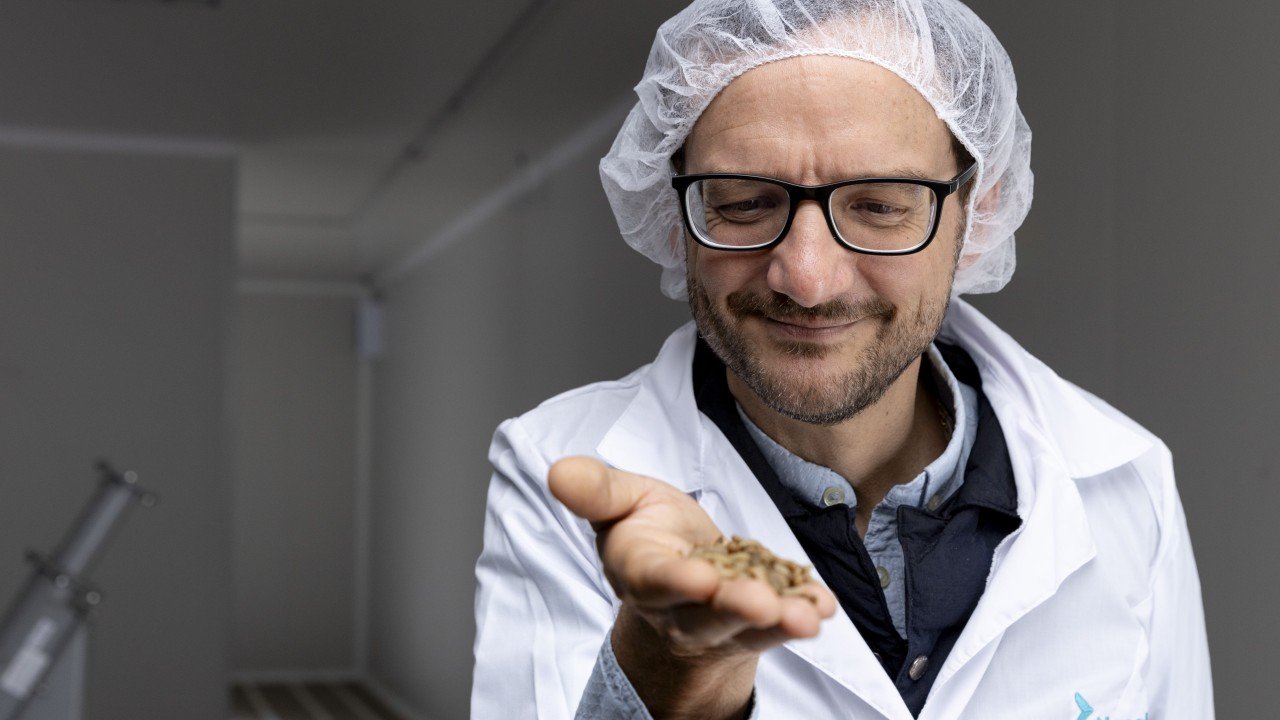Friday, 13 February 2026

Image Source: LinkedIN
The future of sustainable protein may just be insect-sized. In the shadow of rising global food insecurity and environmental stress, Black Soldier Flies (BSF) are emerging as the unsung heroes of a bio-circular revolution—powered not just by nature, but by advanced digital technologies.
At the heart of this transformation is Nasekomo, a Bulgarian biotech startup that combines entomology with industrial precision. Here, millions of BSF larvae feed on agricultural by-products, converting waste into high-value animal protein. Behind the scenes, Siemens’ Xcelerator suite orchestrates operations via digital twins—virtual replicas of every process, from environmental control to feeding cycles.
The urgency couldn’t be greater. Livestock farming currently consumes 77 per cent of global agricultural land while delivering just 18 per cent of the world’s caloric needs. By 2050, an additional 100 million tons of food will be required annually. Traditional protein production models—resource-intensive and emissions-heavy—are increasingly unsustainable.
Black Soldier Flies offer a compelling alternative. In just 12 days, BSF larvae grow 10,000 times their body mass in controlled environments monitored by AI-powered sensors. The result: a nutrient-dense protein meal for aquaculture, poultry, and pet food industries, complemented by insect oil and frass—a potent organic fertilizer. Nothing goes to waste. Even excess heat is repurposed through smart energy management systems.
Digitalization is the engine behind this bio-industrial breakthrough. With advanced simulation and process optimization tools from Siemens, Nasekomo standardizes its modular production units, making them scalable and franchise-ready. These facilities are strategically deployed near agro-industrial hubs, minimizing transportation and maximizing resource efficiency. SiGREEN, part of the Siemens ecosystem, ensures full carbon traceability across operations.
As the EU’s Farm to Fork Strategy accelerates the shift toward sustainable food systems, Nasekomo’s AI-driven, vertically integrated insect farms present a scalable blueprint. Each facility delivers the protein yield of hundreds of hectares of traditional crops—without the land, water, or emissions burden.
This is the new frontier of food tech: where circularity meets computation, and where nature’s tiniest recyclers become the foundation for feeding a resource-constrained world. From waste to wealth, and from simulation to scalability—this is the rise of the digital insect economy.